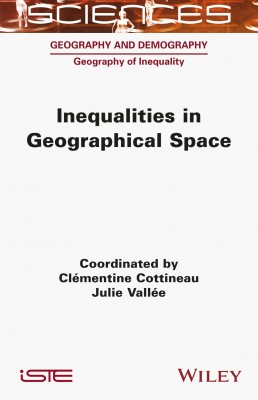
Inequalities are central to the public debate and social science research. They are inextricably linked to geographical space, shaping human mobility and migration patterns, creating diverse living environments and changing individuals’ perceptions of the society they live in and the inequalities that endure within it. Geographical space contributes to the emergence and perpetuation of inequalities between individuals according to their socioeconomic position, gender, ethno-racial origin or even their age.
Inequalities in Geographical Space examines inequalities in education, in the workplace, in public and private spaces and those related to migration. Written by geographers, sociologists and economists, this book draws on a variety of theoretical and methodological approaches and compares different spatial and temporal scales. It highlights the importance of geographical space as a vehicle for the expression, creation and reproduction of social, racial, economic and gender inequalities.
1. The Spatial Dimension of Educational Inequalities, Leïla Frouillou.
2. Socio-spatial Inequalities and Intersectionality, Negar Élodie Behzadi and Lucia Direnberger.
3. Migration, Multi-situated Inequalities and the World Economy, Laurence Roulleau-Berger.
4. The Geographical Dimension of Inequalities in Access to Employment, Philippe Askenazy and Verónica Escudero.
5. The Perception of Inequality and Poverty in the Most Segregated, Affluent Neighborhoods, Serge Paugam.
6. Modeling Inequalities in Geographical Space, Clémentine Cottineau.
7. A Critical Reading of Neighborhood-based Policies and their Geography, Julie Vallée.
Clémentine Cottineau is a geographer, researcher at CNRS, France, and Assistant Professor of Urban Studies at Delft University of Technology, The Netherlands. Her research focuses on urban models and the analysis of socioeconomic inequalities within and between cities.
Julie Vallée is a research director at CNRS, France, in the Géographie-cités laboratory, and a geographer. Her research focuses on daily mobility, urban segregation, place-based effects and social inequalities, especially in health.